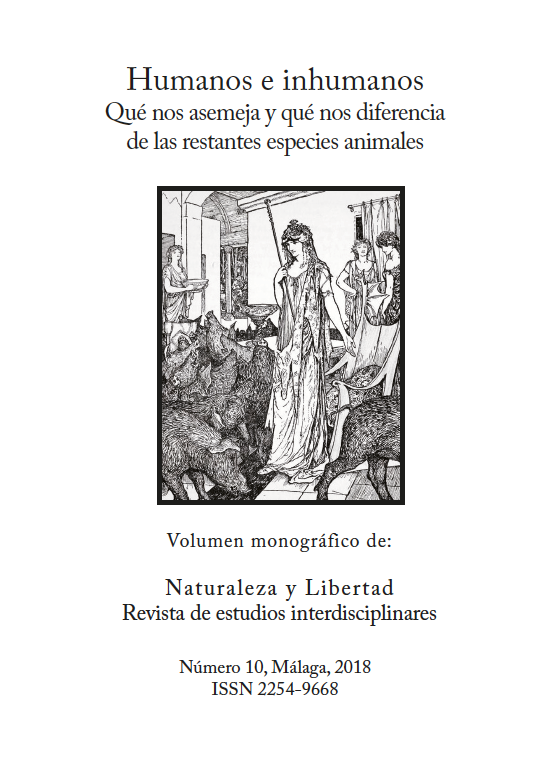Humans and superior animals: ¿are we all persons?
DOI:
https://doi.org/10.24310/nyl.v10i3.3656Keywords:
Philosophy of Nature, Environmental Ethics, anthropocentrism, biocentrism, superior animals, person, metaphysical realism, Alasdair MacIntyre, Daniel DennettAbstract
A number of ecologists and animalist activists reclaim the condition of person to superior animals. Besides the historical trajectory of this term and as a
consequence of the atrocities inflicted to millions of innocent humans during the big Wars of the Twentieth century, different currents of Personalism reserved the word person to stress the very high dignity of each human being. This special condition is due to the constitutive rationality of our species. The essential ration-ality is what allows us to be radically self-conscious and morally free, to the point of being able to self-determine our own end. In this way, the concept person means the uniqueness of each human being. But, what happens with superior an-imals?
Downloads
Metrics
Downloads
Published
How to Cite
Issue
Section
License
Those authors who have publications with this journal, accept the following terms:
1. Copyright and licensing information are clearly described on the journal’s web site: all content published in Naturaleza y Libertad is open acces without limit, and are subject to the Attribution-NonCommercial-ShareAlike 4.0 International (CC BY-NC-SA 4.0) license. The full text of which can be consulted at https://creativecommons.org/licenses/by-nc-sa/4.0/
2. It is the responsibility of the authors to obtain the necessary permissions for the images that are subject to copyright. The authors whose contributions are accepted for publication in this journal will retain the non-exclusive right to use their contributions for academic, research and educational purposes, including self-archiving or deposit in open access repositories of any kind. The electronic edition of this magazine is edited by the Editorial de la University of Malaga (UmaEditorial), being necessary to cite the origin in any partial or total reproduction.
3. This journal allows and encourages authors to publish papers on their personal websites or in institutional repositories, both before and after their publication in this journal, as long as they provide bibliographic information that accredits, if applicable, your posting on it.
4. In no case will anonymous papers be published.





18.png)













